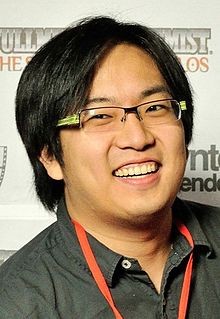A Quote by Raila Odinga
In the US after the Great Depression, they invested heavily in infrastructure to create a lot of employment. In Germany after the war there was the Marshall plan for roads, rail, housing, energy, water and so on. That created massive employment after the devastation of the war and helped them to rebuild the country.
Related Quotes
There is a myth that the New Deal programs on their own pulled the US out of the Great Depression and created the conditions for the economic boom after World War II. As an economist, I can tell you, that is not true. In reality, it was mainly World War II that launched the boom - the massive war mobilization, the horrifying destruction and death caused by it, and then the reconstruction in its aftermath. he US was the only advanced capitalist country that was not bombed during the war.
As you look back in history, we [the United States] have done wonderful things, the Marshal Plan is the most obvious. After World War II, we spent billions of dollars to rebuild Europe or at least part of Europe after the devastation of World War II. We did it out of charity, but we also did it to keep the Russians from getting deeply into Europe.
On healthcare we are the prisoner of our past. The way we got to develop any kind of medical insurance program was during World War II when companies facing shortages of workers began to offer healthcare benefits as an inducement for employment. So from the early 1940s healthcare was seen as a privilege connected to employment. And after the war when soldiers came back and went back into the market there was a lot of competition, because the economy was so heated up.
After the war people said, 'If you can plan for war, why can't you plan for peace?' When I was 17, I had a letter from the government saying, 'Dear Mr. Benn, will you turn up when you're 17 1/2? We'll give you free food, free clothes, free training, free accommodation, and two shillings, ten pence a day to just kill Germans.' People said, well, if you can have full employment to kill people, why in God's name couldn't you have full employment and good schools, good hospitals, good houses?
America felt victorious and generous after World War II. They had also learned from the mistakes after World War I when they imposed punishment on Germany. What became of Germany? A Nazi dictatorship which threatened the world. Today's Germany doesn't feel as prosperous and generous as America then. But actually, Germany still is very prosperous.
The E.U. is the latest of a series of multinational organizations set up after World War II to ensure that there would never again be a pan-European war and to create the conditions for a new European prosperity after the destruction wrought by the war against the Nazis. The E.U. has admirably succeeded at both.
After long centuries, agrarian civilization is weakening. Is sufficient attention being devoted to the arrangement and improvement of the life of the country people, whose inferior and at times miserable economic situation provokes the flight to the unhappy crowded conditions of the city outskirts, where neither employment nor housing awaits them?
The president of the University said that night, congratulations to you the students, you've won a great victory, now the war will end. And I'm certain that he believed it that night and I believed it and we went away happy. Four days later, Martin Luther King was assassinated. Two months after that, Kennedy was assassinated. Two months after that, Henry Kissinger emerged from the swamp he was living in at Harvard with a plan to expand the war.

































